Queer Istanbul: Attitude meets the LGBTQ freedom fighters of Turkey
These are the faces creating space for Istanbul’s queer community, as the increasingly hostile Turkish government makes LGBTQ+ lives harder by the day
By Andy Leake

“Drag queens are an endangered species here. Our community is dying — well, it’s being killed really.” These words from Florence Delight (Flo) — a pillar of Istanbul’s drag scene — have stayed with me after meeting them at one of Istanbul’s coffee houses in October. Due to escalating police action, government discrimination and numerous inequalities, Istanbul’s visibly queer population is shrinking.
It wasn’t always this way. It is legal to be gay in Turkey — the nation’s predecessor, the Ottoman Empire, decriminalised sodomy back in 1858. The Ottomans were notorious for not discriminating based on a partner’s gender. There are well-documented accounts of male dancers — koçek —entertaining Sultans in their palaces as far back as the 1700s.
In the 2000s, Turkey’s President Recep Tayyip Erdoğan, its de-facto leader since 2002, was pro-LGBTQ+ and promised to protect LGBTQ+ rights. In 2003, Turkey became the first Muslim-majority country in which a gay Pride march was held. Government ministers used to advocate for LGBTQ+ rights. For example, in 2011, the Minister of Family and Social Policies, Fatma Şahin, met with an LGBTQ+ organisation to say that the government would work with the community.
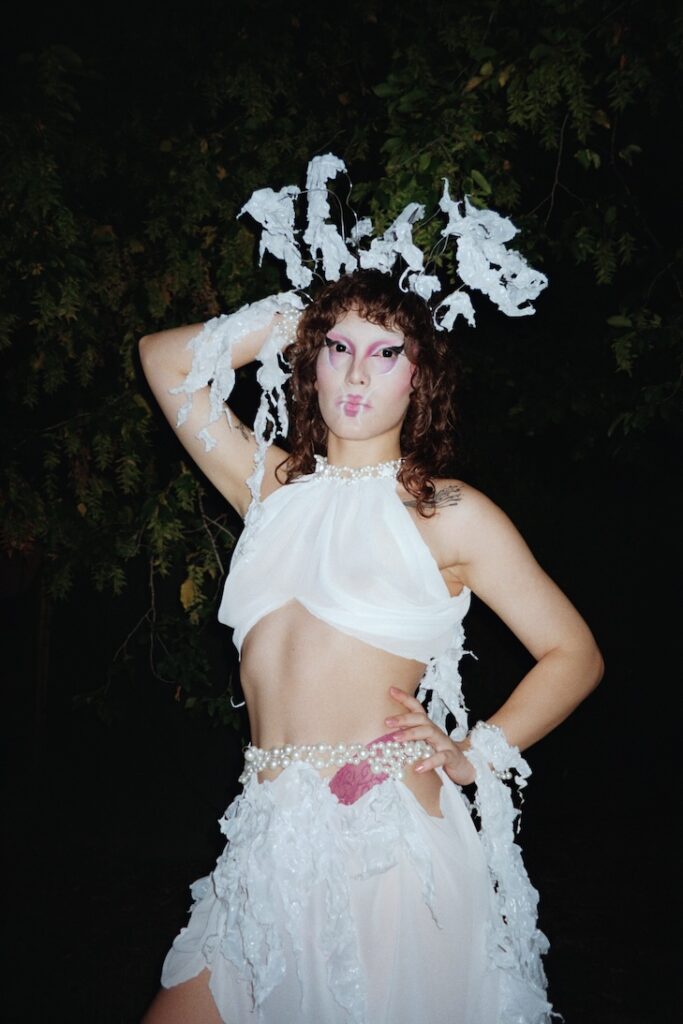
But just four years later, in 2015, Pride marches were banned. The following year, a military division attempted to overthrow Erdoğan’s government, and this further changed Turkey’s political landscape. The administration grew paranoid around public action, and protests are now very rare. Any that do happen are quickly shut down by the police. Instead of Pride, anti-LGBTQ+ marches take place every September. Announced via public broadcast on national television, protestors are encouraged to attend to uphold traditional family and gender values.
Leaders of the government remained mostly quiet on LGBTQ+ issues until the Covid pandemic, when the country’s director of Religious Affairs began to blame it on LGBTQ+ people. At this point, there was a change in Turkish politics and actions were taken that made life increasingly difficult for the country’s queer community.
Queer dating, for instance, is now censored. Grindr is banned in Turkey, and when logging into Tinder, you get a notification warning that you are in a location where LGBTQ+ people are penalised. There are workarounds for this, but it represents the challenges faced by Istanbul’s queer community. Due to Turkey’s economic crisis, and spiralling LGBTQ+ rights situation, many queer people have emigrated. Here, some of those who remain, the bright lights of Istanbul’s LGBTQ+ community, describe what it is like to live in today’s Turkey.
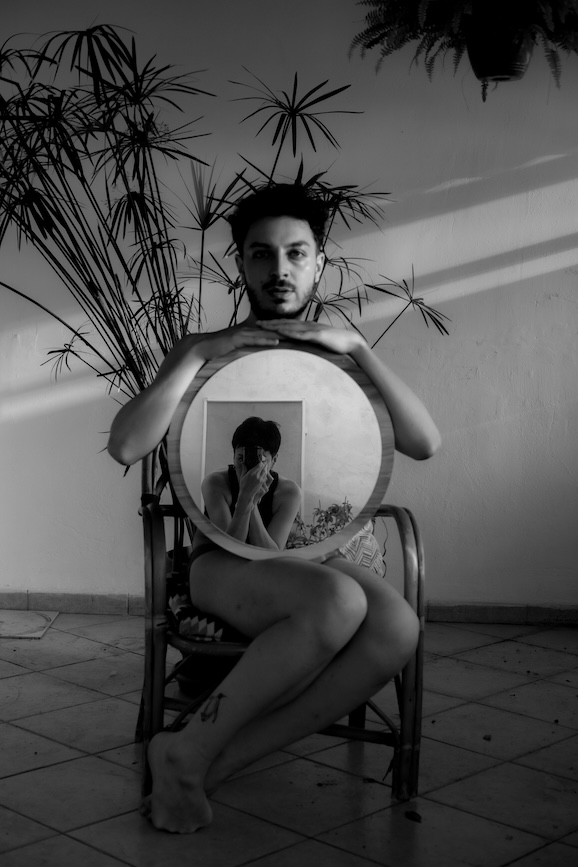
Florence Delight, drag performer
Flo is studying performing arts and anchors a YouTube channel providing news on queer and women’s rights. An enthusiastic historian, calling themselves a drag researcher, they also feature on a YouTube video series by ‘Drama Queers’, where drag queens perform queer Turkish poems written in the 1920s.
“Ten years ago, we had a more vivid scene. We had queens visiting from overseas. But many venues closed during Covid; now we have no stages,” says Flo. They are 26, with bouncy dark curls, piercing blue eyes and a charming, soft-spoken voice.
The Covid lockdown, combined with increasing government censorship of queer performances, means there are few venues in Istanbul. Drag performers have lost a lot of their enthusiastic audiences, explains Flo, and they are having to teach the new, younger generation how to consume drag. “Entertaining queer and straight people in drag combines education and fun. But at the same time, it’s hard to work in different fields because of our visible queerness,” says Flo. “I got a lot of bad attention because of my visible queerness. So, if I couldn’t conceal that, I had to own it. I wanted to share this message of accepting and loving yourself with people who needed to see it. As a young person, I didn’t have any queer people to look up to. That didn’t exist, so I became my own idol. A local, native-speaking drag queen in Turkey.”
They are working to grow their online presence further, focusing on queer history that is often told in a stigmatised, or clichéd way by Turkish media. Along with increasing government censorship, drag performers were banished from most venues. “It’s like torture to perform like this. Drag is supposed to be viewed from the front, and we’re having to perform amongst the crowd,” says Flo, adding that this brings creative challenges, forcing them to adapt their performances. Flo also used to work with large, international brands, but due to government crackdowns, businesses are now censored from platforming queer performers. The government doesn’t want LGBTQ+ culture connected with Turkish traditions.
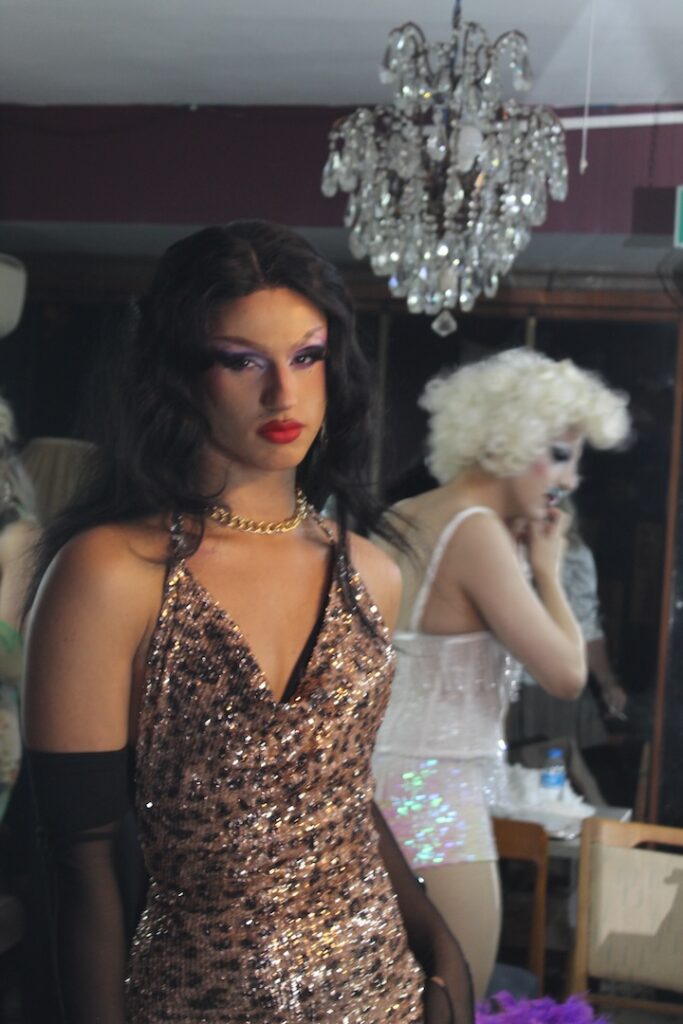
Saint Yule, drag performer
Saint Yule, who moved to Istanbul from North Africa in 2019, is another drag performer who has experienced the effects of police action. When we meet at a sunny, streetside café in Beşiktaş, we speak about Istanbul’s drag scene while she sips espresso mixed with orange juice. Her bleached eyebrows, tousled bleached hair, towering height and modelesque walk definitely make her stand out.
This is one of Istanbul’s safer neighbourhoods for LGBTQ+ people. I asked all of my interviewees to pick a meeting place, which means most of my interviews are taking place in coffee shops bravely sporting Pride flags, with terraces filled with LGBTQ+ people laughing and flirting in the sun.
Saint Yule and I sit on the roadside, watching the busy street life of the city. Street dogs and cats provide plenty of welcome distraction. “The drag is very cultural here. They love to put Turkish, Al Andalus and Kurdish culture into their performances,” says Saint Yule, before highlighting the problems that this brings. “The government does not want queer people to be associated with Turkish culture,” she says, adding that police regularly raid the bars where drag queens perform, often several times a week.
During my week-long visit to Istanbul, police raided a queer nightclub whose name we have decided not to include for security reasons. The venue was running a kink event on the night of the raid. Thirty people were detained, with eight formally arrested for ‘indecent behaviour’ and ‘obscenity’ charges. Two migrants are being held in detention centres and are being threatened with deportation as a result of the police action. One of those was my translator for some of these interviews. The club was closed, and a lawsuit is being filed against its owners. The Turkish media shamed attendees and used it as a call to uphold traditional values.
“These check-ups don’t make sense. They ask for an alcohol licence, which they know we have. They just want to disrupt and end our performances,” says Saint Yule. For her, living in Istanbul as a foreign, queer person is challenging. Due to language barriers, and not being a Turkish citizen, she’s not always offered as many work opportunities. “Being queer will worsen your problems here in Turkey,” she says. Earlier that week, Saint Yule’s friend was arrested while they were out on the street, and then threatened with deportation. “They didn’t stop us because we were foreigners. They stopped us because we looked queer, but then being a foreigner made it worse.”
Male resentment of the drag community is a source of anti-queer legislation. “Toxic masculinity is really harsh here,” says Saint Yule. “I didn’t expect it to be so strong. Through my journey as a trans man, I always tried to not be feminine. Trans women helped me embrace my femininity. They taught me that embracing femininity and makeup doesn’t take away how I perceive myself.”
Saint Yule has always loved dancing and says this is what she loves most about performing. She explains due to the difficulty in finding work, she was going to quit drag. But she remained in the industry for her friends. “Most of my performances I choose because of my friends. If we have a song or a dance we’re obsessed with, I will perform it for them. If I’m selling a song, it’s because I’m selling it to my friends.”
Öner Ceylan and Okan Thedimi, Lambda Istanbul
When Saint Yule’s friend was arrested, the organisation that helped them out of police custody was Lambda Istanbul, founded in 1993 to support and encourage solidarity among queer people. Öner Ceylan has been volunteering with Lambda for 27 years, and his fellow volunteer, Okan, joined in 2009. We meet at the group’s newly opened cultural centre, and drink tea as the Istanbul traffic screeches beneath us.
“I found out about Lambda when the internet was just beginning. I read a lot about LGBT+ rights in the US,” says Öner. Then he discovered Lambda’s online magazine. “It was very different from reading about experiences in the US. I was learning stories from Turkish people, my culture.” He went to his first Lambda meeting, which, despite his nerves, allowed him to meet other LGBTQ+ people for the first time. “I was very impressed. They lived true to themselves. Up until that point, I didn’t believe you could live as a gay man. I didn’t think I’d find a relationship, or ever live with a man.”
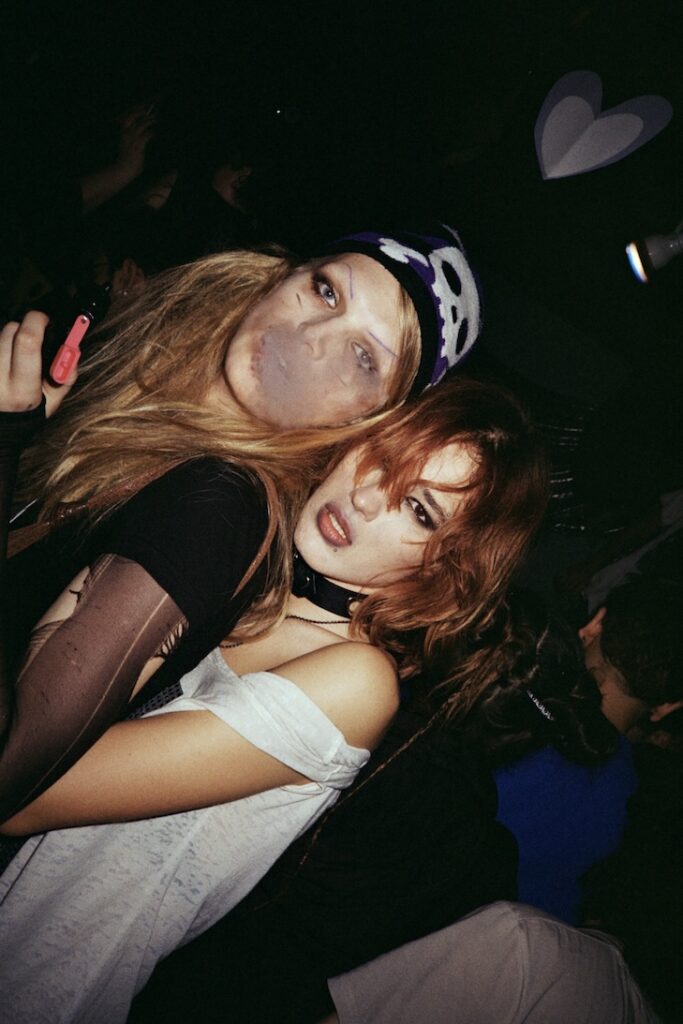
He reflects that no matter how much you read about queer identities, getting to see someone in real life who is comfortable with themselves is affirming. As such, Öner says he is now paying his dues, and is happy to be that inspiration for other people. One example of the work that Lambda does includes regular meetings for the community. On this particular night, they are preparing for a workshop on ‘shame’ — specifically, how to undo shame around queerness.
Öner says that pre-Covid, the government and Erdoğan were mostly quiet about the LGBTQ+ community. Even when the press asked questions about it, the government refrained from positive or negative comments. They seemed neutral in discourse. And yet the trans community still had consistent issues with policing and police brutality.
When the Director of Religious Affairs began to blame the pandemic on LGBTQ+ people when Covid began in 2020, Öner says that President Erdoğan then joined in with the anti-LGBTQ+ discourse.
Despite the rhetoric of the leadership, Öner believes that the Turkish public isn’t really interested in anti-LGBTQ+ rights. He explains how the government pays for people’s transport to its anti-LGBTQ+ marches, even buying attendees’ lunches. Despite this, Öner says that only 1,000 people showed up to the first one, and attendance has decreased annually. He believes that the government is using its hate to distract from the failing economy.
Okan tells me that despite oppression from the government, the queer and feminist movements are growing. “We have been silenced for a while. But our movements are transforming society,” he says. “The genie is out of the lamp, and there’s no going back from here.”
For Öner, continuing to exist is considered a success in the current circumstances. “We’ve used a slogan in recent years: ‘As queer people, whenever we walk on the street, there is a Pride march.’”
Despite the bans, Pride marches continue annually. “Things have changed, but we still have hope they can change back,” says Öner, pinning his hope on young LGBTQ+ people. “The new generation is very strong; I believe in them a great deal. Many people in their twenties never experienced the freedoms of Pride marches that we had. But they still believe in the cause.” Every year, defiant protestors stage a Pride march, deliberately misleading police, tricking them so that they cannot find the parade. Their actions have proved effective, with police arriving too late to the event, and the organisers even announcing their actions via press release.
Üzüm, activist
Throughout the past decades, Üzüm has owned some of Istanbul’s most renowned queer venues. We meet at a coffee shop in the city’s Beyoğlu district, where she has lived for 25 years. There are several queer-friendly venues in the area, and Beyoğlu and nearby Taksim are very special to her. “Beyoğlu is a place where queers gather from all over the world. So many queer people come through here. I analysed them, and I can speak more clearly on queer issues, because I’ve seen it all,” she says.
“For example, across the world, safety is very important,” she continues. “If trans people are able to walk home safely at night, that defines a safe place. If these identities can exist safely, then this is a safe place.”
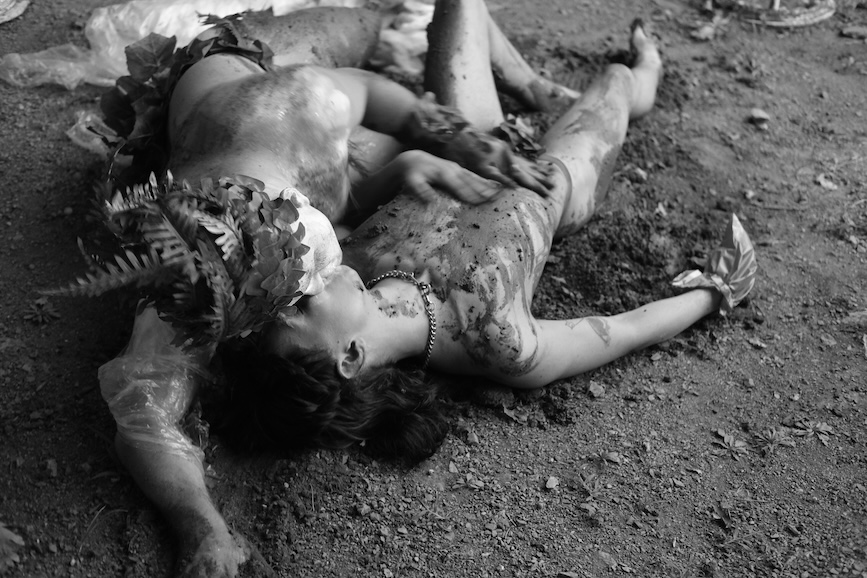
One of the first trans business owners in Turkey, Üzüm ran Laila bar with her queer mother figure, Jilet Sebahat. Üzüm then ran Üzüm bar, and afterwards created Şahika, a bar that puts on drag shows and club nights and which remains one of Istanbul’s queer strongholds. Her success follows long periods of being unemployed due to being visibly trans. She is now also a photographer, and some of her work is featured in this article. “Even cis gay men can find work easier than us. We are disadvantaged because we are feminine; femininity is always more disadvantaged.”
A lot of Istanbul’s clubs catered to gay men only, so Üzüm wanted to create more diverse queer spaces. “Life is hard for everyone, all around Turkey, so a lot of queer people move to Istanbul. They bring different beliefs, ethnicities. Each region has diverse music, so I wanted to make a queer space that represented this. Music is unifying. Other venues were playing Western music. We were having fun celebrating the diverse power of music. Not just foreign pop, but Turkish pop, Kurdish halay, Romani and Arabic music. Everyone needs something to feel loved, and to feel visible.”
Bringing people together into a space where they can feel comfortable and break down societal norms is what Üzüm enjoys about creating queer venues. “Turkey is now against anyone who is not a man,” she says. “It’s always been hard, but in recent years it’s not safe anymore. Even if you have a great career, your art is censored, freedom of speech has been eroded.”
When I meet Üzum, we are joined by two of her trans friends. We sit and talk for hours about their experiences. Indicating each person around the table, Üzüm says, “We’re 43, 23 and 25. We’re from different generations and cultures. But we’re united by a shared despair. My generation had taboos imposed on us. Slut-shaming, body-shaming. Gen Z has an amazing, expanded vision. They want to break the taboos.”
Üzüm reflects on why the Turkish government has changed its attitude towards the LGBTQ+ community. “Turkey was a lot more comfortable for the LGBT+ community 20 years ago. Politicians were talking openly about LGBT+ rights and freedoms. Now it seems they are trying to erase the community entirely,” she says. “It’s because they are threatened. When men can’t control things, they target minorities and disadvantaged people. The economy is downturning, and the government has turned to blame the LGBTQ+ community.”
Nots, Queerwaves
Another creator of safer spaces is Nots, a production manager and co-founder of one of Istanbul’s queer collectives, Queerwaves. They run various events throughout the year, including an annual festival, Butfest. “We created Queerwaves because we needed the space,” they say. “We had electronic music, but events were expensive, and not designed for queer people. We wanted to centre queer people at electronic music events. So, we all learned to DJ, we went to courses and taught each other.”
Nots explains that since 2015, when Pride was banned, the government has become tougher and it’s harder to organise events. There have been attacks on the offices of LGBTQ+ organisations; police even banned a Tea & Talk event at a coffee shop in Kadiköy for non-Turkish speakers to meet. The Turkish government sent the police to shut it down. “It got harder to meet in the day, so we met at night. I have very close friends that I made connections with in nightlife spaces. It isn’t just about dancing; it’s about coming together.”
Often, queer events are the only time members of the community will see each other. “I’m very tired of fighting. But still, seeing everyone enjoying themselves motivates me. I love seeing the shared connections with people who haven’t seen each other since previous events,” says Nots, elaborating on the challenge that comes with working with traditional venue holders. They hold meetings to establish an understanding of pronouns and work to provide their own security and staff to make the spaces as comfortable as possible.
Their annual festival Butfest runs in August from 3pm-5am and features a diverse range of drag performers and music. Importance is placed on making the event accessible, so ticket prices are kept affordable and receive funding via a GoFundMe campaign. “We get support from people outside of Turkey. I think this is sad: we cannot get funding from our own country, so rely on GoFundMe. I think this summarises the current situation with the LGBTQ+ community in Turkey.”
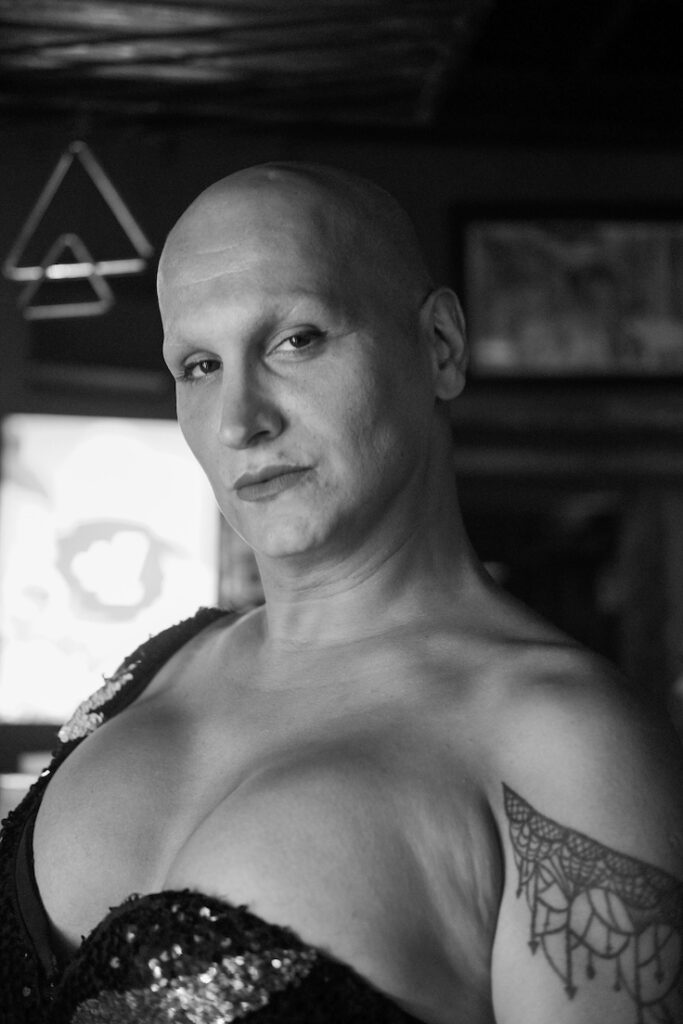
Kübra Uzun, DJ, singer and performer
Another pillar of Istanbul’s LGBTQ+ community, Kübra Uzun is a DJ, singer and performer. Kübra tells me that they plan to move to London. In fact, every person I interviewed for this article has plans to leave Turkey soon. “I’ve worked a lot for the community. I will continue to create new projects, but it’s time to protect myself a bit,” says Kübra.
Speaking on the issue of emigration, Kübra says, “I was born and raised here, but when I am alone in Istanbul, I don’t feel safe. I don’t have energy anymore — that’s why I’m moving. We will not be silenced, we are queer. We are not using our power to our full potential. We need to push ourselves and our community. When Pride is banned, and people continue it anyway, then it is a real Pride. When you’re facing real adversity.”
Kübra runs underground queer night ‘XSM’ alongside fellow DJ Mx.Sür. On the night we visit, it’s trendy and welcoming, filled with a diverse, well-dressed crowd. We’re here for a friend’s birthday. Through smiles, he says how safe he has felt all night, and how rare finding a crowd like this is in Istanbul nowadays. Despite oppression from the police and government, and issues of unemployment and emigration, there is still a fight happening.
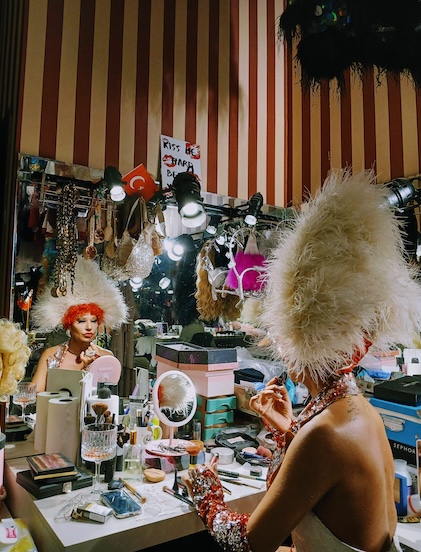
Queer-friendly spaces continue to exist all around the city, hidden from plain sight. We attend a cabaret run by drag matriarch Ahsen [above], who is the first drag queen in Turkey to have a book about her life published. Several nights a week, she performs with magnetic stage presence in an extravagant theatre hall in front of rich Turkish families and couples. Tables at the cabaret can cost thousands of dollars. There are dancers, acrobats, belly dancers and burlesque performers. Meeting these performers backstage, a large number of them are LGBTQ+.
A room full of people celebrating drag performers on a huge stage is a rare sight in Erdogan’s Istanbul. It’s a window to the past, but with the work and passion of the people I have spoken with and the numerous other activists and openly queer people across the community, those days can return. From gay hammams to hidden, underground bars, the community is here to stay. With the promise of a politically active younger generation, Istanbul’s queer story isn’t over yet. The Turkish government is trying to erase the LGBT+ community. But from the people I have met, and the fire I see in them to fight on, I can’t imagine that happening anytime soon.
